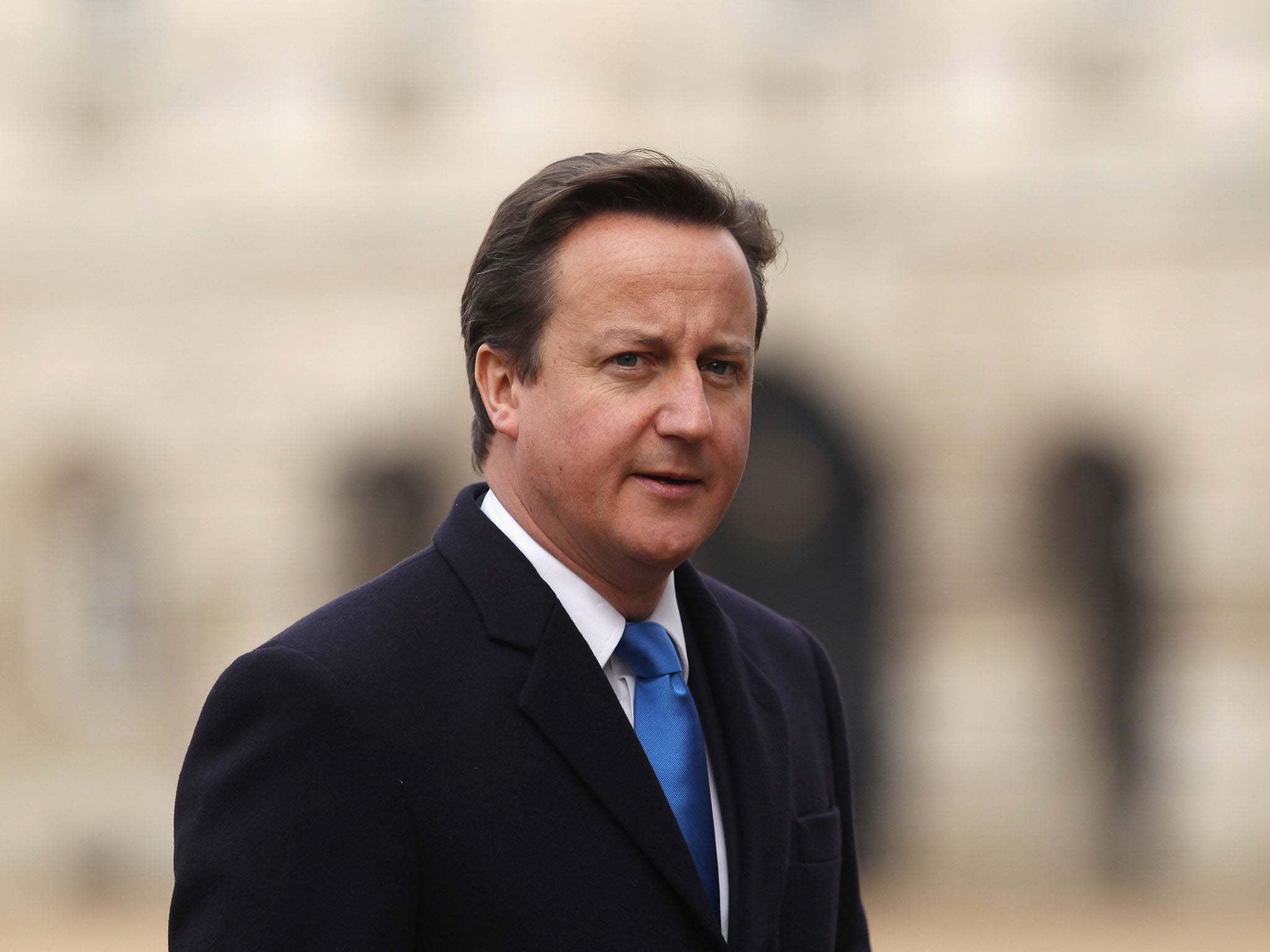David Cameron to 'scrap' Human Rights Act for new 'British Bill of Rights'
Mr Cameron said as long ago as 2006 that he wanted to 'entrench' a British bill of rights

A future Tory Government would scrap the Human Rights Act and replace it with a new Bill of Rights to give Britain more control over the laws that it implements, David Cameron said today.
Tories have long been opposed to the Human Rights Acts which came into force in 2000 and effectively codifies the protections in the European Convention on Human Rights of which Britain is a signatory.
Many in his party have called for a Tory Government to pull out of the ECHR altogether but Mr Cameron has not gone that far. Instead he said a Tory only Government would introduce a new British Bill of Rights.
However as long as Britain remains a signatory to the ECHR it would still be open to members of the public or group to directly petition the European Court of Human Rights in Strasburg to hear their case.
In fact Tony Blair introduced the Human Rights Acts in an effort to give UK court a greater role in deciding such cases without the need to recourse to Strasburg.
Mr Cameron said as long ago as 2006 that he wanted to "entrench" a British bill of rights, which would outline "core values" and responsibilities, in British law - so it could not be overturned in the Commons.
He said a "clear and codified" bill would allow the European Court of Human Rights to apply a “margin of appreciation” in its rulings - where judges are obliged to take into account the cultural, historic and philosophical differences between Strasbourg and the nation in question.
In his speech the Prime Minister cited the issue of prisoner voting to make the case for reform, and criticised the European Court of Human rights for a series of decisions that “are frankly wrong”.
“Rulings to stop us deporting suspected terrorists. The suggestion that you've got to apply the human rights convention even on the battlefields of Helmand.
“And now - they want to give prisoners the vote. No, I'm sorry, I just don't agree.
“Our Parliament - the British Parliament - decided they shouldn't have that right.
“This is the country that wrote Magna Carta, the country that time and again has stood up for human rights, whether liberating Europe from fascism or leading the charge today against sexual violence in war.
“Let me put it very clearly: We do not require instruction from judges in Strasbourg on this issue.
“So at long last, with a Conservative government after the next election, this country will have a new British Bill of Rights to be passed in our Parliament, rooted in our values.”
Join our commenting forum
Join thought-provoking conversations, follow other Independent readers and see their replies
Comments